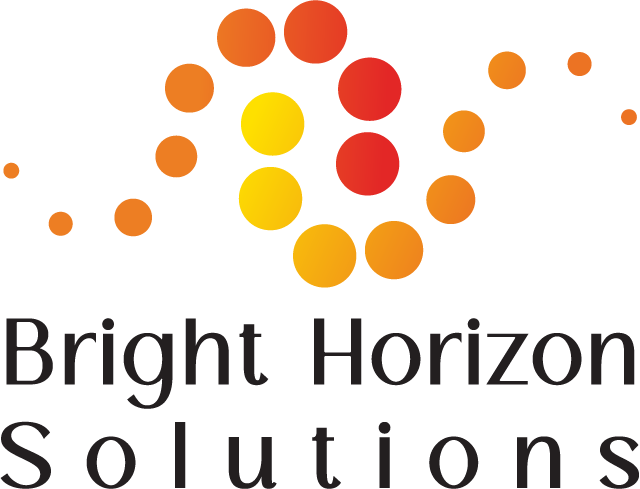Why the EB-3 Visa Might Be the Best Fit for You???
Choosing the right employment-based visa is crucial for your journey to the United States. The EB-3 visa is a popular choice for many skilled workers, professionals, and even unskilled workers, offering a practical pathway to permanent residency. Here’s an in-depth look at why the EB-3 visa could be the best option for you.
Overview of the EB-3 Visa
The EB-3 visa is part of the employment-based immigrant visa categories and falls under the third preference. It is designed for:
- Skilled Workers: Those with at least two years of job experience or training in a specific occupation.
- Professionals: Individuals with a U.S. bachelor’s degree or its foreign equivalent.
- Unskilled Workers (Other Workers): Those performing unskilled labor that requires less than two years of training or experience.
Key Advantages of the EB-3 Visa
1. Broad Eligibility Criteria
One of the primary advantages of the EB-3 visa is its broad eligibility criteria. Whether you are a skilled worker, a professional with a bachelor’s degree, or an unskilled worker, the EB-3 visa can cater to a wide range of applicants.
- Skilled Workers: The requirement of at least two years of experience or training makes it accessible to many individuals who have gained practical skills over time.
- Professionals: If you hold a bachelor’s degree or its equivalent, the EB-3 visa offers a clear path to U.S. residency.
- Unskilled Workers: Unlike other visa categories, the EB-3 visa includes provisions for unskilled workers, providing opportunities for those in various labor sectors.
2. Employer Sponsorship
The EB-3 visa process is employer-driven, meaning you need a job offer from a U.S. employer willing to sponsor you. This can be advantageous because:
- Job Security: Having a job offer ensures that you have employment lined up when you arrive in the U.S.
- Support: Employers often provide support throughout the application process, including assisting with paperwork and covering application fees.
3. Path to Permanent Residency
The EB-3 visa offers a direct path to obtaining a green card, allowing you to live and work in the U.S. permanently. This stability can be appealing for those looking to establish a long-term future in the United States.
Comparing the EB-3 Visa with EB-1 and EB-2 Visas
To understand why the EB-3 visa might be the best fit for you, it’s helpful to compare it with the EB-1 and EB-2 visas, which have different requirements and advantages.
EB-1 Visa (First Preference)
Eligibility Requirements:
- EB-1A: Extraordinary ability in sciences, arts, education, business, or athletics. No job offer required.
- EB-1B: Outstanding professors and researchers with international recognition. Requires a job offer.
- EB-1C: Multinational executives and managers with at least one year of employment abroad in the past three years. Requires a job offer.
Advantages:
- No Labor Certification: The EB-1 visa does not require labor certification, speeding up the process.
- Current Priority Date: The priority date for the EB-1 visa is often current, leading to faster processing times.
Drawbacks:
- High Criteria: The eligibility criteria for the EB-1 visa are stringent, requiring proof of extraordinary ability or outstanding achievements.
EB-2 Visa (Second Preference)
Eligibility Requirements:
- EB-2A: Advanced degree (master’s or higher) or a bachelor’s degree plus five years of progressive work experience.
- EB-2B: Exceptional ability in sciences, arts, or business. Requires a job offer, but the National Interest Waiver (NIW) can waive this requirement.
Advantages:
- Advanced Degrees: Suitable for individuals with advanced degrees or exceptional abilities.
- National Interest Waiver: The NIW allows certain applicants to self-petition without a job offer.
Drawbacks:
- Labor Certification: The EB-2 visa typically requires labor certification, adding complexity to the application process.
- Priority Date Backlogs: Applicants from high-demand countries may experience long waiting times due to visa availability.
Why the EB-3 Visa Could Be the Best Fit
Considering the advantages and drawbacks of the EB-1 and EB-2 visas, the EB-3 visa stands out in several ways:
- Broad Eligibility Criteria
- The EB-3 visa is accessible to a wide range of applicants, including skilled workers, professionals, and unskilled workers. Whether you have a bachelor’s degree, specific job training, or minimal qualifications, there’s a category within the EB-3 visa that could suit your background.
- Less Stringent Requirements
- Compared to EB-1 and EB-2 visas, the EB-3 visa has more relaxed eligibility criteria. You don’t need to demonstrate extraordinary or exceptional abilities. Instead, the focus is on your practical experience and qualifications, making the process more attainable for many individuals.
- Stable Employment Opportunities
- The EB-3 visa requires a full-time, permanent job offer from a U.S. employer, ensuring stable employment upon your arrival. This provides a sense of security and stability as you transition to life in the U.S.
- Pathway to Permanent Residency
- The EB-3 visa offers a clear path to obtaining a U.S. green card. As a permanent resident, you can live and work in the U.S. indefinitely, enjoy access to healthcare and educational opportunities, and eventually apply for U.S. citizenship.
- Diverse Job Opportunities
- The EB-3 visa covers a wide range of job types, from skilled and professional roles to unskilled positions. This flexibility makes it an attractive option for individuals from various professional backgrounds and industries.
- Comprehensive Application Support
- The EB-3 visa application process provides extensive support from the U.S. employer and includes steps like labor certification, filing Form I-140, and either adjustment of status or consular processing. This structured process ensures that you receive guidance and support throughout your application journey.
- Family Benefits
- As an EB-3 visa holder, your spouse and unmarried children under 21 can also apply for derivative visas, allowing them to join you in the U.S. They can enjoy the same benefits of permanent residency, including access to education and healthcare.
- Opportunities for Career Growth
- With a U.S. green card, you are not limited to the job that initially sponsored your visa. You have the freedom to explore various career opportunities, switch employers, or even start your own business, providing you with ample opportunities for professional growth and development.
Conclusion
The EB-3 visa is an excellent option for individuals who may not meet the stringent criteria of the EB-1 or EB-2 visa categories. With its broad eligibility criteria, stable employment opportunities, and clear pathway to U.S. permanent residency, the EB-3 visa can be the best fit for many aspiring immigrants. By understanding the requirements, preparing thorough documentation, and seeking professional assistance when needed, you can successfully navigate the EB-3 visa application process and achieve your dream of living and working in the United States.
If you have any further questions or need assistance
Visit us at: www.bhslgroup.com
Phone: +1-212-347-6364
Email: info@bhslgroup.com


